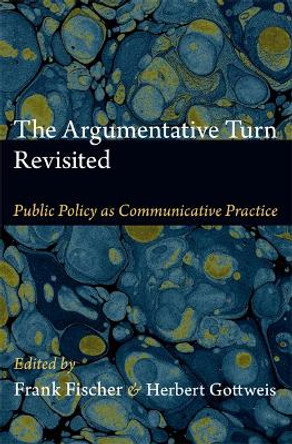Description
The contributors, scholars of international renown who range across the theoretical spectrum, emphasize the political nature of the policy planner's work and stress the role of persuasive arguments in practical decision making. Recognizing the rhetorical, communicative character of policy and planning deliberations, they show that policy arguments are necessarily selective, both shaping and being shaped by relations of power. These essays reveal the practices of policy analysts and planners in powerful new ways--as matters of practical argumentation in complex, highly political environments. They also make an important contribution to contemporary debates over postempiricism in the social and policy sciences.
Contributors. John S. Dryzek, William N. Dunn, Frank Fischer, John Forester, Maarten Hajer, Patsy Healey, Robert Hoppe, Bruce Jennings, Thomas J. Kaplan, Duncan MacRae, Jr., Martin Rein, Donald Schon, J. A. Throgmorton
Explores the interplay of language, action, and power in both the practice and the theory of policy-making
About the Author
Frank Fischer is Professor of Political Science at Rutgers University in Newark and a member of the Bloustein Graduate School of Planning and Public Policy on the New Brunswick campus.
John Forester is Professor of City and Regional Planning at Cornell University.
Reviews
"This book has the potential to be important in the field, the leading statement for a movement. It does not call merely for words to balance the statistics, as in the tired debate between the humanities and the sciences. On the contrary, it argues that the words and the statistics are all part of the argument. The contributors apply theories of judgment ranging from classical rhetoric to modern theories of narrative to see the judging whole. The book proposes a new way to see old debates. . . . In short, the book is excellent."-Donald N. McCloskey, University of Iowa
Book Information
ISBN 9780822313724
Author Frank Fischer
Format Paperback
Page Count 352
Imprint Duke University Press
Publisher Duke University Press
Weight(grams) 549g






